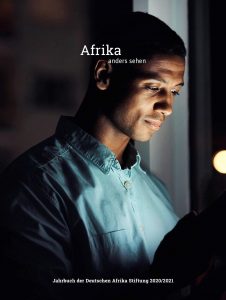
Naturally, yearbooks are always snapshots. Their dating indicates this. At the same time, however, yearbooks claim to provide a snapshot of the current status of a subject. With regard to activities and events on the African continent, this is not easy, as many things develop and change very quickly.
COVID-19 not only hit the northern hemisphere last year, but also became a defining factor for a number of African countries, threatening the livelihoods of many people. So far, we do not know the exact course the pandemic will take in Africa; however, it is certain is that it will both change many things on the ground and the geopolitical situation in Africa. Hence,this volume attempts to both take stock of the current situation and give an outlook.
For all the significance of the pandemic, it would be wrong to reduce 2020/21 to COVID-19. Political and economic development also continued in Africa: the reform process continued in Sudan, neighbouring Ethiopia fell into crisis, numerous elections took place in West Africa, and in Western Sahara shots were fired for the first time in 30 years. On 1 January 2021, a new chapter of economic integration began with the launch of the African Continental Free Trade Area (AfCFTA).
The AU-EU Summit was cancelled due to the pandemic. However, this has not prevented us as the German Africa Foundation from devoting special attention to the important topic of the future shape of relations between Africa and Europe. Therefore, we have included the most important contributions from an event on this topic in this volume.
Despite the pandemic, we also succeeded in awarding the German Africa Award in 2020; it went to the Somali llwad Elman. I am very pleased about this. Naturally, a separate chapter is dedicated to the work and person of our award winner.
– Dr Uschi Eid, President of the German Africa Foundation
Please note: The yearbook is only available in German. We apologise for the inconvenience.